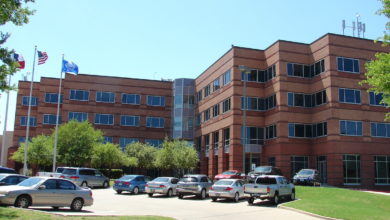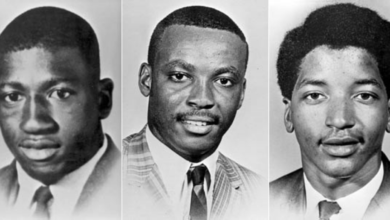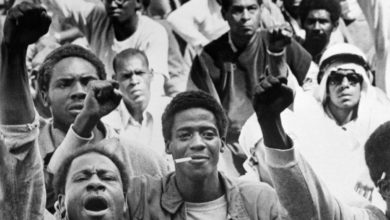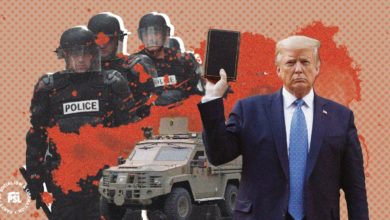On April 13, around 30 students of Virginia Commonwealth University gathered in Richmond’s historic Monroe Park to protest proposed changes to the student code of conduct that threaten free speech. The protest, organized by the Students for a Democratic Society, was followed by a march into the offices of the vice provosts to deliver signed letters about the code of conduct.
The changes proposed by the VCU administration use broad language that could be used to restrict peaceful protesting on campus. The proposed code included the following language prohibiting:
“Participating in an on-campus or off-campus demonstration, riot or activity that disrupts the normal operations of the University and/or infringes on the rights of others; leading or inciting others to disrupt scheduled and/or normal activities within any campus building or area.”
Nicholas A., member of SDS and Party fo r Socialism and Liberation, who organized the protest, said, “Obviously there are things that are clearly disruptive and abnormal for a university, but the proposed code leaves it so open-ended that they could easily be manipulated by an administrator who may not like what some demonstration is about.” (Commonwealth Times, April 17)
“The wording is too vague for our First Amendment rights to be realistically protected,” said VCU student Vicki Yeroian. (GayRVA, April 12)
After receiving numerous e-mails speaking out against this proposed change to the code of conduct, University officials backtracked and claimed they never intended to restrict peaceful demonstrations on campus. They stated that the proposed changes were in response to the so-called “riots” that happened last year after the VCU Rams basketball team lost in the Final Four.
What the media failed to tell the public is that students did not riot but rather were provoked, corralled and attacked with tear gas by the police after the game. The police were belligerent and did not follow protocol when handling the crowd and, as a result, made the situation worse. Some students were injured.
Students were also concerned by the timing of the proposed changes to the code. VCU did not start seeking student input until late in the semester, when students were preoccupied with final papers and exams.
“The review for the general student body wasn’t released until maybe a week or two ago,” said SDS member Phil Cunningham. “People are gearing up to do their finals. … People don’t have time.” (Commonwealth Times, April 17)
On April 18, VCU held a public forum in an attempt to get student input on the proposed changes. At the forum, officials announced that they had revised their proposal regarding demonstrations. The new proposed wording includes language that specifically protects peaceful protests. They also said they would push the deadline for approval to the fall semester in order to get more student input. However, as with any struggle, the students must remain vigilant to ensure the administration keeps its word.
Student protesters not only defended free speech on campus but took aim at other attempts to crush the people’s right to peaceful assembly. The SDS call to action condemned the arrest of pro-choice protesters at the Virginia Capitol building in March, the attacks on Occupy Richmond, the attack on homeless rights protesters in Monroe Park last year, and the Georgia state legislature’s unsuccessful union-busting attempt known as SB 469, which would have made it a felony to picket.
Vigilance, consciousness and the willingness to stand up and fight back is what stopped VCU from railroading through a vaguely worded code that could have permitted them to capriciously punish First Amendment activities. It is these very simple principles, which have helped people win victories around the world, that pushed back VCU.






